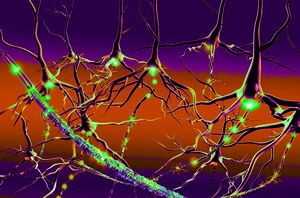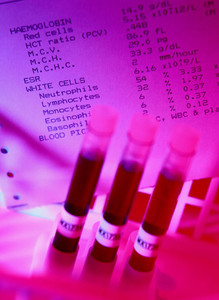The definition of non-biological complex drugs (NBCDs) is not officially recognized, and there is no corresponding term, in the European Union (EU) pharmaceutical legislation or scientific guidance. Despite this, authors Falk Ehmann and Ruben Pita argue in their personal capacity that the existing EU legislation and guidance is equipped to adequately assess the quality, safety and efficacy, as well as the lifecycle management, of such a group of medicinal products [1]. While agreeing with most of Ehmann and Pita, a number of experts from the Steering Committee members of the NBCD Working Group pointed out that there are still many unknowns when it comes to NBCDs [2].
Is the EU ready for non-biological complex drug products?
Non‐Biological Complex Drugs/Research
|
Posted 03/03/2017
 0
Post your comment
0
Post your comment

Like biologicals, NBCDs consist of different (closely related) structures that cannot be fully quantitated, characterized or described by (physico-)chemical analytical tools. The composition and quality of NBCDs are dependent on the manufacturing process and controls – just as is the case with biologicals.
Examples of NBCDs include nanomedicines, such as liposomes, polymeric micelles, glatiramoids, iron-carbohydrate complexes and nanocrystals, as well as dry powder inhalers [1].
In their manuscript, Ehmann and Pita investigate marketing authorization procedures and legal basis of submission for NBCDs, as well as the harmonization of requirements for NBCDs across regions. They find that ‘the current EU regulatory framework for medicinal products has been proven to be robust and efficient for the evaluation of NBCDs, including nanomedicines, facilitating the deliverable of safe and efficacious medicines to patients’. They therefore conclude that ‘the EU network is ready for NBCDs’.
The NBCD Working Group authors [2], while agreeing that ‘in principle, EMA [European Medicines Agency] may have the legal basis to deal with NBCD products and their follow-on versions’, ‘in practice there is a list of ‘desiderata’ to be addressed. These include:
1. Strengthening the science base in the public domain to demonstrate equivalence of these products, for Europe as well as for the rest of the world
2. Taking appropriate actions and guidance when therapeutic inequivalence of products has been proven (from independent sources published in reputable journals)
3. Intensifying global harmonization efforts of reflection papers/guidance documents
4. Assisting in and support of educational actions to spread awareness and increase knowledge on the topic especially towards healthcare professionals to eventually assure optimal patient benefit by rational and correct drug treatment
Conflict of interest
The authors of the research paper [1] declared that the views expressed are those of the authors and should not be understood or quoted as being made on behalf of or reflecting the position of the European Medicines Agency.
The authors of the research paper [2] declared that the views expressed are those of the authors and should not be understood or quoted as being made on behalf of or reflecting the position of the individual organizations or the NBCD Working Group as a whole.
Editor’s comment
Readers interested in contributing a research or perspective paper in a similar topic to GaBI Journal – an independent, peer reviewed academic journal – please send us your submission here.
Related articles
EMA guidance for NBCDs and products approved
Harmonization of requirements for NBCDs across regions
Marketing authorization for NBCDs in the EU
References
1. Ehmann F, Pita R. The EU is ready for non-biological complex medicinal products. Generics and Biosimilars Initiative Journal (GaBI Journal). 2016;5(1):30-5. doi:10.5639/gabij.2016.0501.008
2. Flühmann B, et al. Is the EU ready for non-biological complex drug products? Generics and Biosimilars Initiative Journal (GaBI Journal). 2016;5(3):101-2. doi:10.5639/gabij.2016.0503.026
Permission granted to reproduce for personal and non-commercial use only. All other reproduction, copy or reprinting of all or part of any ‘Content’ found on this website is strictly prohibited without the prior consent of the publisher. Contact the publisher to obtain permission before redistributing.
Copyright – Unless otherwise stated all contents of this website are © 2017 Pro Pharma Communications International. All Rights Reserved.
Biosimilars and follow-on NBCDs for MS in Europe, the US and Canada

Non‐Biological Complex Drugs/Research Posted 19/01/2018
Scientific and regulatory considerations for follow-on versions of complex drug products containing nanomaterials

Non‐Biological Complex Drugs/Research Posted 04/05/2017
Follow-up studies needed to ensure safety for follow-on NBCDs

Non‐Biological Complex Drugs/Research Posted 31/03/2017
The best selling biotechnology drugs of 2008: the next biosimilars targets







Post your comment